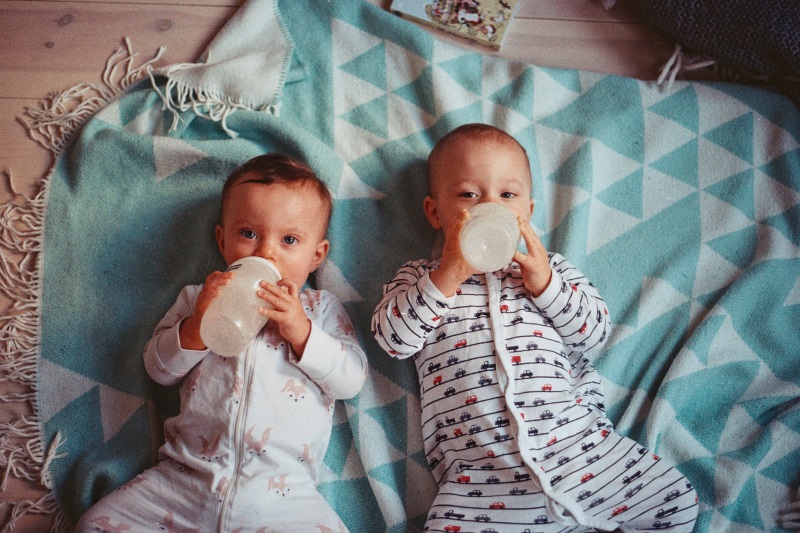Breast or bottle: when fed is best
If you are a parent—and even if you are not—you will probably be aware that breastfeeding is generally held to be the ‘gold standard’ for feeding babies. ‘Breast is best’ is a mantra pushed by midwives, nurses and doctors all around the world, and with good reason.

In the developing world, clean water is often not readily available. Parents may not have the facilities to clean and sterilise bottles, or boil water before making up formula. As a result, formula milk and bottle-feeding can literally be a deathtrap for babies, with the ever-present risk of infection. Breastfeeding in those countries is both cheaper for mothers and saves babies’ lives. Small wonder that the World Health Organization stresses its benefits, and campaigns tirelessly for higher breastfeeding rates around the world.
Breastfeeding is not, however, the universal joy that its advocates would have you believe.
Mothers are often told that breastfeeding shouldn’t hurt—with the implication that if it does, they must be doing it wrong. But sometimes it does hurt, and for no apparent reason. Cracked and painful nipples are a reality of life for some breastfeeding mums. If you doubt that, just look at the number of nipple creams available from pharmacies. It is hard to bond with your baby when his or her latching-on makes tears of pain spurt from your eyes.
Some babies, too, find breastfeeding harder. Some don’t seem to know how to latch on. Midwives may express scepticism, but plenty of mothers have stories that back this up. When good support is available, mothers may find a way. But if that support is not available—and very often it is not, in our stressed and time-pressed health service, and with families far away—this does not happen.
It is also important to admit that many mothers, especially early on, are embarrassed by breastfeeding. They choose not to go out, rather than having to feed their baby in public. Of course it is OK to breastfeed anywhere, but new mothers are a vulnerable group, and may not want to risk the slightest hint of tutting or adverse attention.

For other mothers, breastfeeding is not even an option.
For example, the received wisdom is that your milk levels respond to demand, but there are plenty of mothers for whom that turns out to be untrue. When you find that your baby is trying to feed every hour, and for the best part of an hour, and you just don’t have any milk left, you know you’re not winning. As one mothers’ movement says, under those circumstances, ‘fed is best’. This is particularly true for second- and third-time mothers: rushing around after a toddler does not leave you much spare energy. Your breastmilk levels may well be a casualty.
Other mothers are forced to choose between their own health, and breastfeeding. Pregnancy and childbirth are known risk factors for mental health problems, and this is often made worse by having to change established medication during pregnancy because of the risks of drugs crossing the placental barrier. But many anti-depressants can turn up in breast milk. Who would risk it? Far better to take the medicine that works for you, and give your baby a bottle.
What about mothers who need to go back to work soon after their babies are born? Statutory maternity pay may not be enough to support a family. For these mothers, there is no choice.

Fortunately for all these mothers and babies, there is a safe alternative: bottle-feeding.
In the developed world, most people have ready access to clean running water, steam sterilisers and fridges to store cooled boiled water. There are still dangers of infection from using bottles, but they can be managed by careful hygiene. Yes, there are health benefits for both mother and baby from breast-feeding, but for some women, these benefits are more than outweighed by the disadvantages.

We believe that it is time that we recognised that ‘fed is best’ for babies.
Instead of pushing breast-feeding with little discussion of the alternatives, we should be empowering and encouraging mothers to make the right decisions for them and their babies. There is a role here for all health professionals who come into contact with mothers and babies. Midwives, health visitors, breastfeeding counsellors, GPs, psychiatrists and others: this means giving them information about the risks and benefits of both options —and not just generally, but to fit their personal circumstances—and then helping them to manage their choices, without judgement or censure.
Medstars Medical Concierge Service
Looking for extra guidance when it comes to your healthcare? Sometimes interpreting medical information and making the best decisions can be daunting and complicated. Our private medical concierge service provides easy access to top UK health experts. We guide our patients with genuine choice and trust, offering a bespoke service for anyone in the world seeking private UK healthcare. Learn more about Medstars Medical Concierge Service. Want to learn more about providing our medical concierge service as an employee benefit? Learn more about Medstars Medical Concierge for Business.
